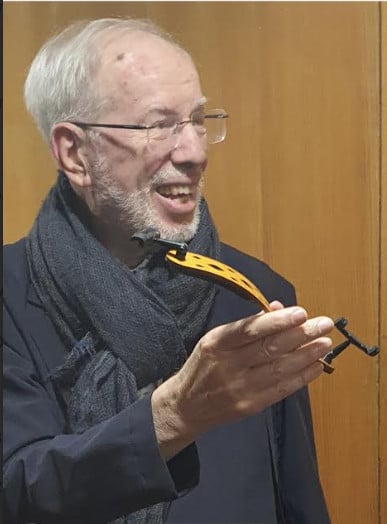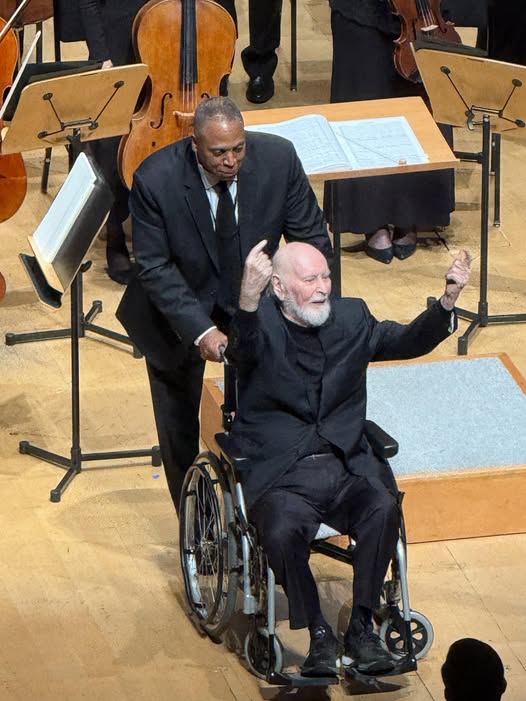A broken shoulder rest? No problem for Gidon Kremer
OrchestrasBetween movements of the Mieczyslaw Weinberg violin concerto with the London Philharmonic Orchestra last night,, Gidon Kremer paused to adjust his shoulder rest – only for the wretched thing to break in half.
‘Never happened to me before in 60 years on stage,’ Gidon tells slippedisc.com. Happily one of the first violins gave up a suitable rest and Kremer was able to finish a momentous performance of the work.
He followed it with a muted miniature by Valentin Silvestrov, ‘to remind us of the suffering in Ukraine’.
Who said politics and music don’t mix? The second half of the concert consisted of Shostakovich’s Babi Yar symphony, an indictment of Soviet anti-semitism and other abuses. Andrei Boreyko conducted an imposing account of the hour-long work with soloist Alexander Roslavets and an impressive LPO chorus.






Comments